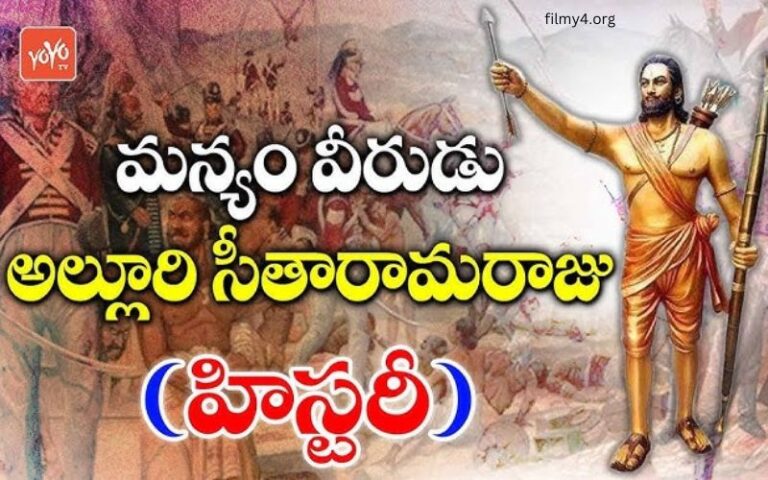Alluri Sitarama Raju, a legendary figure in the Indian freedom struggle, was a prominent revolutionary who led the Rampa Rebellion against the British colonial rule in the early 20th century. As a revered hero in the Telugu-speaking regions of India, his life and contributions have been deeply etched in the collective memory of the people. In this comprehensive biography, we will delve into the remarkable journey of this iconic leader, exploring his early life, the influences that shaped his revolutionary spirit, and his pivotal role in the Indian independence movement.
Early Life and Upbringing
Alluri Sitarama Raju was born on July 4, 1897, in the village of Pandrangi, located in the Visakhapatnam district of present-day Andhra Pradesh. He hailed from a family with a long lineage of landlords and landowners, and his early years were marked by a privileged upbringing. However, his experiences during this time would later shape his unwavering commitment to the cause of social justice and the emancipation of the oppressed.
Influences and Inspiration
As a young man, Alluri Sitarama Raju was deeply influenced by the teachings of Mahatma Gandhi and the principles of non-violent resistance. He was also inspired by the revolutionary ideologies of Bhagat Singh and Subhash Chandra Bose, which instilled in him a strong sense of patriotism and a determination to fight for India’s freedom. These diverse influences converged to forge Alluri’s unique approach to the freedom struggle, blending non-violent civil disobedience with armed resistance.
Role in the Indian Freedom Movement
Alluri Sitarama Raju’s contribution to the Indian freedom movement was significant and multifaceted. He actively participated in various nationalist activities, including organizing protests, rallies, and boycotts against the British colonial authorities. His unwavering commitment to the cause earned him the respect and admiration of his fellow revolutionaries and the local population.
The Rampa Rebellion
In 1922, Alluri Sitarama Raju launched the Rampa Rebellion, a armed uprising against the British in the Rampa region of Andhra Pradesh. This rebellion was a culmination of his efforts to resist the colonial exploitation of the local tribal communities, who were subjected to oppressive policies and the exploitation of their natural resources. Alluri’s leadership and tactical prowess during this rebellion earned him the moniker “the Tiger of Rampa.”
Leadership and Tactics
Alluri Sitarama Raju’s leadership during the Rampa Rebellion was marked by his strategic brilliance and his ability to inspire and mobilize the local tribal communities. He employed guerrilla warfare tactics, ambushing British forces, and disrupting their supply lines. His deep understanding of the terrain and his close connection with the local people allowed him to evade capture for an extended period, further bolstering his reputation as a formidable revolutionary.
Legacy and Impact on the Telugu Community
Alluri Sitarama Raju’s legacy extends far beyond his role in the Indian freedom struggle. He is revered as a symbol of Telugu pride and a champion of the rights of the marginalized communities. His unwavering commitment to social justice and his willingness to sacrifice his life for the greater good have made him a revered figure in the Telugu-speaking regions of India.
Commemorations and Honors
Alluri Sitarama Raju’s contributions to the Indian independence movement have been recognized through various commemorations and honors. His birth anniversary is celebrated as “Alluri Jayanti” in Andhra Pradesh, and numerous statues and memorials have been erected in his honor across the state. Additionally, the Indian government has bestowed upon him the prestigious “Padma Bhushan” award, the country’s third-highest civilian honor.
Alluri Sitarama Raju in Popular Culture
Alluri Sitarama Raju’s legacy has been immortalized in various forms of popular culture, including literature, cinema, and folk art. His life and exploits have been the subject of numerous books, plays, and films, which have helped to keep his memory alive and inspire future generations of revolutionaries and freedom fighters.
Conclusion
The life and legacy of Alluri Sitarama Raju stand as a testament to the unwavering spirit of the Indian freedom struggle. His remarkable journey, from a privileged upbringing to a revered revolutionary, serves as a powerful reminder of the sacrifices and struggles that paved the way for India’s independence. As we honor the memory of this iconic figure, we are reminded of the enduring power of courage, conviction, and the unwavering pursuit of justice. Alluri Sitarama Raju’s story continues to inspire generations of Indians, ensuring that his legacy will forever be etched in the annals of Indian history.
To learn more about the life and legacy of Alluri Sitarama Raju, explore our collection of resources on the Indian freedom struggle. Discover the untold stories of the unsung heroes who fought for India’s independence and continue to inspire us today.
